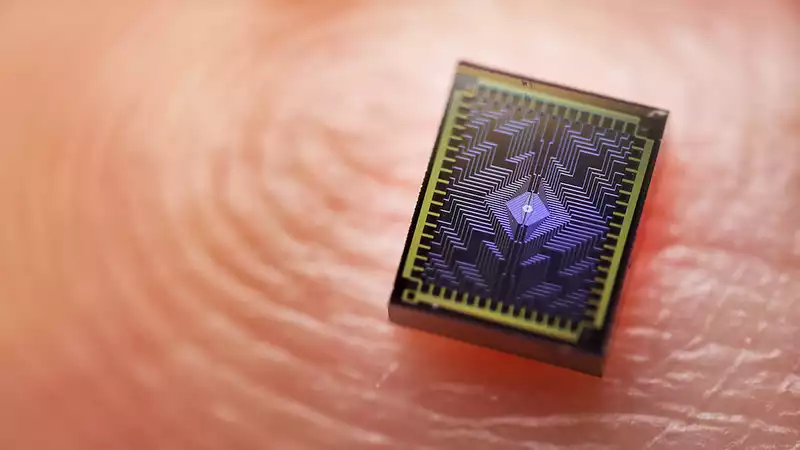Intel announced that it has begun production of its latest silicon-based quantum processor, the Tunnel Falls chip, a 12-qubit chip designed to aid researchers and scholars in the field of quantum computing. The chip is expected to accelerate the development of practical quantum computers in the coming years.
It uses current complementary metal-oxide-semiconductor (CMOS) fabrication technology and is available in large quantities, a key feature. However, they are not likely to be added to Newegg's cart anytime soon. These chips are development tools and are being distributed to researchers.
Much of the cutting-edge quantum computing research has required expensive and time-consuming development of application-specific custom devices. In addition, developers may have to adapt software to run processes within the constraints of cloud services and available hardware. In other words, flexibility is limited. [According to Dr. Dwight Luman, a prominent member of Sandia National Laboratories' technical staff, "Sandia National Laboratories is excited to be the recipient of the Tunnel Falls chip. The device is a flexible platform that will allow Sandia quantum researchers to directly compare different qubit encodings and develop new qubit operating modes.
"This level of sophistication will allow us to innovate new quantum operations and algorithms in the multi-qubit regime and accelerate learning rates in silicon-based quantum systems."
Intel plans to use the information gained from Tunnel Falls to develop future quantum computing technologies; next-generation quantum chips based on Tunnel Falls are expected to be released in 2024.
What does all this mean for consumers? As a gamer, there is no need to plan an immediate upgrade to a quantum computer.
The first applications are very scientific and academic. Things like materials science and molecular analysis. Among other things, quantum computers are expected to help develop improved drugs, battery technology, and climate analysis and prediction. Traffic management is another highly practical issue I have heard about.
But quantum computers have another, more nefarious use. Quantum computers are thought to be an indispensable tool in the field of digital warfare and espionage. This is because quantum computers can render many widely used encryption standards obsolete. Much of the work on quantum computers is being done in secret by governments around the world. It's like an arms race.
Quantum computers could theoretically decrypt Satoshi's private key and access long-dormant bitcoins. While this may sound exaggerated, the millions of quantum bits needed to do such a thing are years away, and much of the world's security could be upgraded with quantum-secure cryptography. Money in the bank should be safe, famous last words?
Intel's efforts in the quantum computing race are welcome. I look forward to seeing how this revolutionary and genuinely world-changing technology develops. As long as it is used for the good of the world, not to hinder it.
By 2030, we may see real-time, fully ray-traced games and 4K, 120fps cyberpunk without DLSS. That is probably the real goal of the Tunnel Falls chip.


Comments